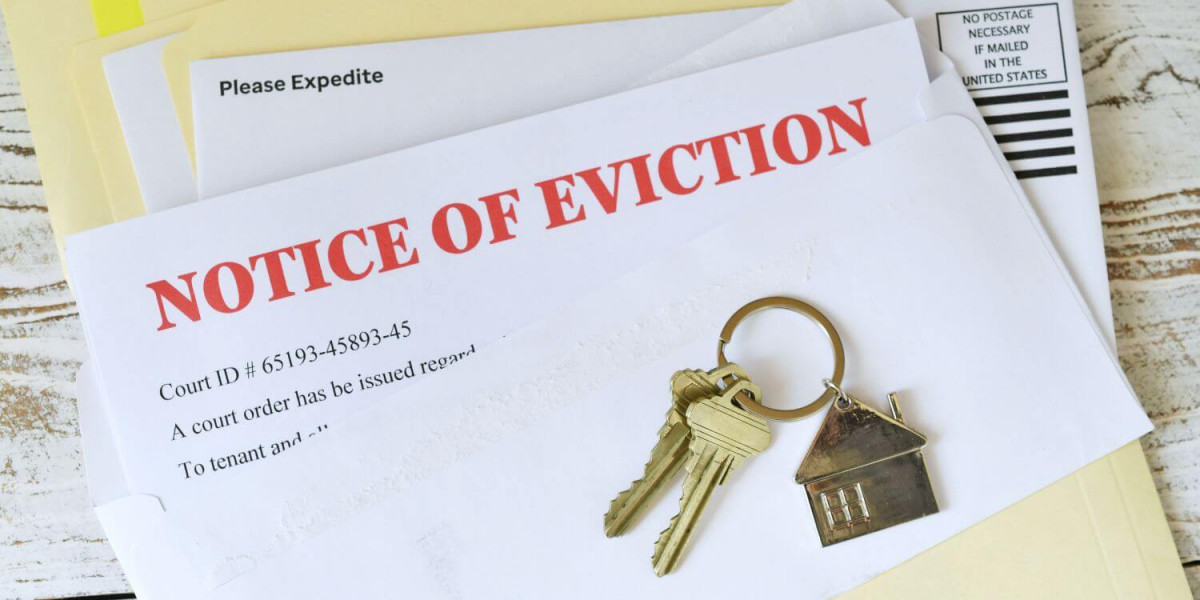Tenant eviction is a legal and often complex process. When a tenant violates the terms of a lease agreement—whether it’s for non-payment of rent, unauthorized subletting, noise complaints, property damage, or illegal activities—landlords often seek help from tenant eviction specialists. These professionals understand the laws, serve the proper notices, and streamline the eviction process.
In this guide, we’ll explore how tenant eviction specialists can assist with lease violations, and how tools like the Section 8 and Section 21 notice play roles in legal compliance.
Understanding Lease Violations
What Constitutes a Lease Violation?
A lease violation occurs when a tenant breaches any clause of the lease agreement. Common lease violations include:
Failing to pay rent on time
Housing unauthorized occupants or pets
Causing excessive noise
Damaging the property
Engaging in illegal activities
Subletting without permission
Each of these violations can potentially lead to eviction if not resolved. However, eviction must follow strict legal procedures.
Role of Tenant Eviction Specialists
Who Are Tenant Eviction Specialists?
Tenant eviction specialists are professionals experienced in landlord-tenant laws, documentation, and court procedures. They often work with landlords, property managers, or letting agents to ensure evictions are legally sound and as stress-free as possible.
How They Assist With Lease Violations
When a lease violation occurs, eviction specialists can:
Assess the situation and determine if legal eviction is warranted
Draft and serve the correct notices (including Section 8 and Section 21 notice)
Provide guidance on collecting evidence to support the case
Prepare documentation for court
Represent or coordinate with legal professionals if needed
Legal Grounds for Eviction Due to Lease Violations
Section 8 of the Housing Act 1988 (UK)
Section 8 is the legal route for landlords seeking possession when a tenant has breached their tenancy agreement. Lease violations, such as rent arrears, damage to the property, or antisocial behavior, fall under the Section 8 process.
An eviction specialist will:
Advise on the appropriate grounds under Section 8
Serve a Section 8 notice with the correct notice period (usually 14 days for serious breaches)
Help draft supporting documents to prove the lease violation
Section 21 Notice
A Section 21 notice is used to regain possession of a property at the end of a fixed-term tenancy or during a periodic tenancy, without needing to prove fault. Although not directly tied to lease violations, an eviction specialist may recommend using a Section 21 notice if:
The landlord prefers not to engage in lengthy dispute resolution over minor or ongoing lease violations
The tenancy agreement is ending soon, and the landlord prefers a clean break
The eviction specialist ensures all requirements are met, such as serving proper documentation (e.g., EPC, How to Rent guide), ensuring deposit protection compliance, and providing appropriate notice periods (usually 2 months).
Eviction Process for Lease Violations
1. Identifying the Breach
The first step is to confirm that a lease violation has occurred. Eviction specialists help landlords:
Gather photographic evidence
Document witness statements
Record communication with the tenant
2. Serving the Correct Notice
Depending on the nature of the violation, eviction specialists will choose between Section 8 and Section 21 procedures. For example:
Serious lease breaches like non-payment, damage, or criminal behavior usually require a Section 8 notice
Persistent but less serious breaches may justify using a Section 21 notice if the tenancy is near its end
3. Allowing Time for Compliance
After serving notice, tenants are given time to rectify the issue or vacate the property. Specialists ensure the landlord remains legally compliant during this waiting period.
4. Applying for a Possession Order
If the tenant does not comply, eviction specialists prepare the necessary documents to apply for a possession order through the courts.
5. Court Hearing and Enforcement
If the case proceeds to court, specialists may:
Attend the hearing on behalf of the landlord (if permitted)
Coordinate with solicitors
Assist in applying for a warrant of possession if the tenant refuses to leave after the court ruling
Special Considerations for Section 8 Tenancies
Tenants under Section 8 of the Housing Act (commonly linked to Housing Benefit or social housing) have certain protections. Evicting these tenants requires extra care, and eviction specialists ensure:
Proper legal grounds are cited under Section 8
Tenants' rights are respected
Any eviction process complies with local council or housing association protocols
Specialists may also assist in communicating with housing officers or social services during the eviction process.
Avoiding Legal Pitfalls
Eviction specialists help landlords avoid common mistakes, such as:
Serving the wrong type of notice
Giving insufficient notice periods
Failing to protect the tenant’s deposit
Missing required documents (e.g., gas safety certificates)
Taking illegal steps (e.g., changing locks without a court order)
Ensuring legal compliance helps prevent delays and costly legal battles.
The Importance of Professional Help
When Should a Landlord Hire an Eviction Specialist?
Landlords should consider hiring an eviction specialist when:
The lease violation involves complex or repeated issues
The tenant is under Section 8 and may receive legal support or council housing representation
The landlord is unsure whether to use a Section 8 or Section 21 notice
The process needs to be handled swiftly and within the bounds of the law
Benefits of Using a Specialist
Efficiency: Faster resolution of tenant issues
Accuracy: Correct notices and documentation
Protection: Legal safeguards and court representation
Peace of Mind: Professionals handle stressful situations on your behalf
Final Thoughts
Lease violations can significantly impact property management and rental income. Whether dealing with serious breaches or persistent nuisances, tenant eviction specialists play a crucial role in managing the process efficiently and lawfully.
By using the correct tools—especially the Section 8 and Section 21 notice—they help landlords maintain control over their properties while respecting tenants' rights and following due process. Hiring an eviction specialist is often a worthwhile investment in reducing stress, avoiding legal errors, and ensuring a smooth eviction process.








